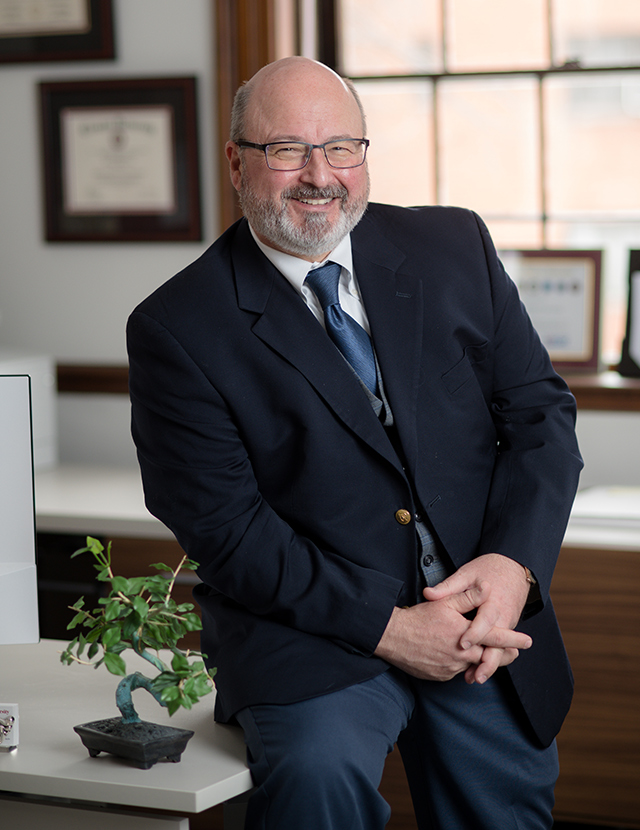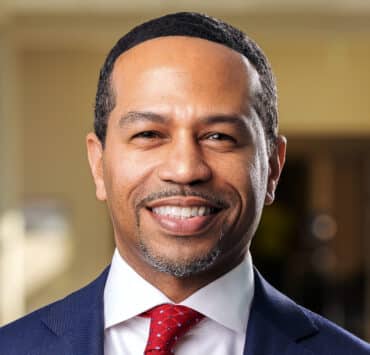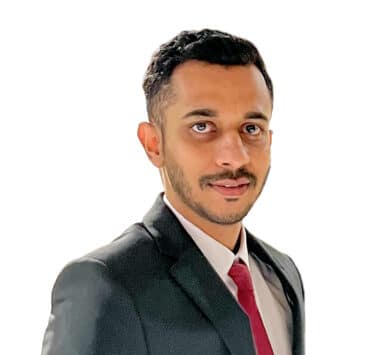“We touch people’s lives at their happiest, and sometimes their saddest, times: marriage and parenthood, but also illness, death, and divorce. The role that benefits and compensation has is huge,” says Jack Kennedy Jr., and he should know. “I’ve been doing this for thirty-plus years. It is, to me, a great source of job and personal satisfaction.”
Kennedy is assistant vice president of benefits and compensation at Carnegie Mellon University in Pittsburgh. From technology to cultural shifts, he has seen epochal changes to how HR is administered over the last three decades.
Take the fax machine. Kennedy is a veteran of the auto industry, and recalls, “When I was at General Motors, I’d have people show up in my office and say, ‘I want to retire right now.’ We would order a packet from Detroit. It would get mailed to me. That would be a week. You’d have to fill it out and send it back; it took weeks to get somebody retired. When they invented the fax machine, the packet would be on my desk in an hour. I could retire someone in a day.”
“We touch people’s lives at their happiest, and sometimes their saddest, times.”
Jack Kennedy Jr.
Another positive change, he says, is medical protocols. “When I started, only an abbreviated version of a colonoscopy would be covered, and a full procedure would be done only if they found something,” he says. “When that protocol changed, we saw dramatic increases in people who survived cancer.”
Kennedy lived in Buffalo, New York, for most of his life before moving to Pittsburgh in 2018. His father was a union leader in the auto industry. “He was a shop committee man before serving as president of the United Auto Workers Local representing the Chevrolet-Buffalo plant for seventeen years,” Kennedy says. “I remember it as a very close-knit environment. When someone needed something, everyone came together and supported each other. As I moved into human resources, that background formed the foundation for the way I thought people should be supported in their employment life.”
Kennedy began his career in benefits in 1986 as a social welfare examiner for Erie County before moving to a benefits position at American Axle & Manufacturing, his father’s former plant.
The auto industry went from boom to bust during the 2008 financial crisis, and Kennedy knew that if he wanted to stay in Buffalo, he would have to make himself more marketable and consider other industries. He got his MBA and then spent four years with Moog Inc. In 2011, he joined the Seneca Gaming Corporation as executive director of compensation and benefits, and was later promoted to vice president of HR.

Photo by Sally Maxson
He would finally leave his hometown of Buffalo after his position as director of compensation and benefits with Fidelis Care became redundant when the company was acquired. “At this point, my options were somewhat limited,” he says. “As you move up the career ladder, opportunities and positions are harder to find.” He had a daughter and other family living in Pittsburgh, which drew him to the city.
When he was offered the chance to join Carnegie Mellon University, it was an opportunity that he couldn’t turn down. The current leader of the benefits and compensation department had plans to retire, which allowed him time to transition smoothly into the position.
“I had never worked in higher ed,” Kennedy says, “so the lead time gave me the opportunity to learn the organization. Every industry has its own ways of working. In higher ed, you need to socialize. There are many groups and departments throughout the university; everyone needs to have their voice heard when it comes to benefit and compensation changes, and be given the opportunity to provide their feedback. This collaboration is a very important aspect of the functioning of the university.”
Kennedy himself plans to retire in the next five years or so, but for the moment he’s fully immersed in his career and moving forward with new initiatives.
He’s particularly proud of one: a benefit assessment project that aims to create an accessible and streamlined program to help employees select the benefits program that is the best fit for them. “We offer a lot of [program] choices,” he says, “and because of that, people might be overwhelmed. We’ve already streamlined our vendors and plan designs to make these plans more easily understood by our participants.”
Another new initiative is a retirement readiness program. While many programs focus on the basics, such as benefits and Social Security, Kennedy feels that it’s also important to cover things retirees may not have anticipated. For example, is it finally time to sell the three-story colonial house and downsize to a ranch?
Among Kennedy’s current priorities, diversity, equality, and inclusion (DE&I) issues are high on the list. “It’s very important work,” he says. “We try to offer programs that provide everyone fair and equal treatment and remove the hurdles that people in diverse lifestyles have to overcome. For example, in same-sex marriages, we want to make sure that those couples are offered the same parental leave opportunities to bond with their children.”
Kennedy and his team have also been involved in creating programs to support campus families and address the issue of quality childcare—always a challenge for working families, and one that’s been exacerbated by the pandemic. Finding solutions involved collaboration between the office of human resources and many other departments in the university.
In March 2020, he says, they went fully remote, and employees’ children weren’t in school. “Working around those needs was very difficult,” he says, “but we had the strong support of university leadership. During the unprecedented challenges that faced the university during the pandemic, they were proactive and engaged in these issues and empowered us to continue to develop and offer competitive benefits to support the wellbeing of the campus community.” Among the university’s responses was the creation of on-campus drop-in centers and a proctoring program where older children could be supported during online classes.
“As I moved into human resources, [my union] background formed the foundation for the way I thought people should be supported in their employment life.”
Jack Kennedy Jr.
Carnegie Mellon partnered with a service provider that offers an online marketplace to connect caregivers with families in need of their services, which include childcare, senior care, special needs care, tutoring, pet care, and housekeeping. Since then, the university has expanded the program to include concierge-level support, especially in infant care. The team continues to look at innovative ways to support families, such as potentially using of mobile lactation units to assist breastfeeding parents.
Jack Kennedy Jr. has been in his current role since October 2020. He has adopted his predecessor’s game plan, grooming his successor for when he retires. “I want to make sure that when I leave and my successor steps into my role, they will be prepared to lead the programs and support the goals of the university,” he says.


